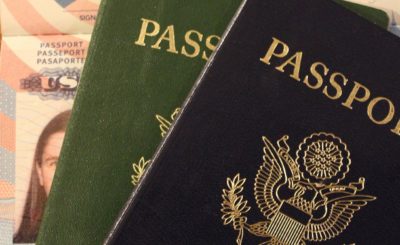What To Do When Pulled Over For A DUI?
The following are dui tips from attorneys, on steps an individual pulled over by police officers for a DUI should follow.
DUI TIPS #1: Do Not Admit Anything
The biggest mistake any accused driver makes is admitting to anything regarding drinking to the police. We are not saying lie to the police, that can be illegal. Rather, our dui tips suggest that when you get pulled over, your main goal should not be to dig your own grave. We are not telling you to lie to an Officer, that is foolish and a Veteran Officer will likely know if something is afoot. When a police officer pulls you over in the wee hours of the night or early in the morning, the officer likely did so because he has some type of reasonable suspicion that you are a drunk driver. Prepare yourself for the inevitable, that is, the officer will approach your car and ask you a few questions. The officer may lie to you, as he is allowed to do to a certain extent and tell you that he or she, stopped you for failure to use a turn signal, your window tint is to dark, or for some other reason. It’s really just an excuse to talk to you, to smell you, and determine if you are under the influence. Some things the officer will be looking for is:
- Watery or Bloodshot eyes
- Flushed or reddening in the face
- Slurred Speech
- The Smell of Alcohol
Many of the above descriptions can be argued away by a well-versed attorney as allergic reactions, medicine, or some other cause. What really gets the unwary driver into trouble is when the officer asks simple questions such as “Have you been drinking?” and you answer “Yes, Officer, but only about 2 or 3 beers”. You just admitted that you were drinking prior to entering the vehicle and now the officer has probable cause to search your vehicle, give you a breathalyzer test, and attempt to get you to do other sobriety tests. As we have always stressed on this site, remember you have constitutional rights. We advise you express that you would like to invoke your right under the Fifth Amendment to remain silent and not to incriminate yourself. This is tip 1 of our Dui tips.
DUI TIPS #2 Politely Refuse Field Sobriety
It is important to remember that the Police Officer is doing your job. At the same time it is also important to remember that the Police Officer is not your friend and is not trying to do you any favors. Therefore, one of our most important dui tips is that we highly advise against you consenting to commit to a field sobriety test and of course the breath test (which we will explain in greater detail later). It is true, under all State laws that if you are operating a motor vehicle that you have to give a Police Officer your license, registration, and proof of insurance if requested. However, you do not have to consent to participating in field sobriety tests. You also do not have to consent to blowing in the portable breathalyzer test. In the latter case, the Officer may inform you that failing to participate in the breathalyzer test means your license will get suspended. While this is true in some states, our dui advice is that its better to have a short-term suspended license than a DUI arrest and conviction. Be warned, the Officer will try to give you the impression that failing to do so will be worse for you, or that you legally are required to do consent to all their tests, this is not true. They are simply trying to gather as much evidence to prove that you were guilty of a DUI at trial. Even if you pass all their field tests an Officer can still arrest you and charge you with DUI. Thus, our dui tips strongly suggest that even if the Officer wants to make sure you are fine to drive do not consent to any of his tests. (Unless of course you were not drinking or impaired from any alcohol or substance). In our experience we have seen Officers give a breathalyzer to a driver, the driver passed, and the Officer still arrested them. This is not the norm, just a warning. The person beat their case of course because of the lack of evidence against them, so please do not take lightly our dui advice here.
DUI TIPS #2.5 Politely Refuse the First Breath Test
There are generally two kinds of breath tests that Police Officers use when determining if they should charge an individual with a DUI. The first breathalyzer test is given before they arrest someone often known to those in law enforcement as the Preliminary Screening Test, this test helps to determine how drunk a person really is, administered after they have failed a field sobriety test.
ALWAYS REFUSE THIS FIRST TEST! It is within your rights to refuse this test.
The post-arrest breathalyzer test is a bit more complicated. In a majority of States you have the option, after your arrest (and usually done at the police station) to choose between submitting a blood test, a breath test, or both. However, ultimately you cannot refuse to give at lease one of these tests. Refusing to comply and commit to one of these test lead to an automatic suspension in a majority of states. In the first breathalyzer test, refusing to comply might lead to a license suspension in some States, but is highly unlikely. Yet, here, at the point of the second test such refusal leads to an automatic license suspension by State law in a majority of States. We strongly suggest that you select the breath test over the blood. If you did not drink at all you should select the blood test because blood test tend to be more accurate, and is physically hard evidence that can be tested at any time by the appropriate experts and is very, very, difficult to argue against. We suggest the breath test solely because it is open to various challenges at court. Most experienced DUI attorneys will be able to argue on your behalf that:
- The State, not you must prove that the breathalyzer machine was up to date, accurate, correctly calibrated
- The State must prove that you did nothing that would impact its results such as cough, hiccup, burp, or vomit during its assessment of you.
DUI TIPS #3 Politely, But Affirmatively Invoke Your Right To Counsel
If you are ever read your Miranda Rights, or if the Officer asks you if you understand your rights in any situation, immediately invoke your Fifth Amendment Right to Counsel. This is crucial dui advice. We are also sorry to inform you that most Police Officers will not likely read you your Miranda Rights (Miranda v. Arizona) until after you have been arrested. Most of the time the Officer will not read you your rights until they feel they have collected enough evidence or have obtained incriminating statements from you before reading you your Miranda rights. Legally, if you are ever under arrest or detained and the Police ask questions that are likely to illicit a response from you than your Miranda Rights need to be read to you. Yet, this is rare. Our dui tips take this into account, so listen closely. Truly, you should not wait for the Officer to read you Miranda Rights. We advise that you ask the arresting Officer after they place handcuffs on you if you are being arrested or detained. If they acknowledge that you are being arrested than you should immediately, affirmatively, inform the Officer that you are either invoking your 5th Amendment Right to Remain Silent, your 5th Amendment Right to Counsel, or both. Many people get confused with the 6th Amendment Right to Counsel which comes into play after you have been brought to the judge and the 5th Amendment Right to Counsel during police interrogation. You should invoke the 5th Amendment Right to Counsel immediately and remain silent to any questions that the Officer may ask you in regards to your charges. It is important not to say anything after invoking your right because if you do it can still be used against you. If an Officer continues to ask you questions after or ignores your request your entire case can be thrown out. Your Right to Counsel also gives you the right to a phone conversation, in private, with a lawyer on prior to any breath, blood, or even urine test. If you tell the officer your invoking your 5th Amendment right to counsel, the failure for Officers to obey your request your entire case could be tossed from the courtroom.
DUI TIPS #4 Get An Independent Blood Test
First off, it is important that you know that a Police Officer needs a warrant if they wish to take blood from you immediately after you are pulled over. Out of all our dui tips, this one may be the most important when it comes to trial. Police do not need a warrant to breathalyze you. The Supreme Court has held that a blood test is more intrusive than that of a breath test and a person is protected by the Fourth Amendment when it comes to blood test.
If an officer offers you the opportunity to get an Independent Blood Test, than you should take them up on it. If an Officer has reached this point in their investigation they have gathered what they believe is enough evidence against you to charge you with a DUI. In the American system, lucky for you, your still innocent until the evidence proves you guilty. You do have the right o your own blood sample which can be done by a phlebotomist and tested in an independent laboratory. Many Officers will even release you instead of taking you to jail if your request to immediately get an Independent Blood Test if the officer is finished obtaining evidence from you. Even if you mention it to the officer, it will allow your attorney to argue that the officers refusal to allow you to get an Independent Test interfered with your protected right of Due Process and Fairness, and a court can actually rule that the blood or breath test taken by the Officers to be suppressed since you were not able to gather evidence to defend yourself against the Officers accusations.
DUI TIPS #5 As Soon As Possible Write Down Your Own Version of the Events
It’s important to write down your own events of what occurred on the night of your arrest and leading up to your arrest as soon as possible. The reason for this is so that you have the most accurate version of your story from your memory, before you began to forget everything that happened. Remember, your version will be compared to the Officers version at court. Officers have a number of cases and a few months later when your case comes to trial, if it does at all, it will be difficult for the Officer to remember everything. They will rely on their police report. Often the prosecutor will suggest to the judge or jury that the Officer was sober, you were not. That the Officer wrote a police report and that you have no such report and then the prosecutor will attempt to challenge every single thing you say at the trial. They will mostly attempt to challenge your memory of the events. Yet, if you write a report immediately the next day, time stamp it, or some how get it notarized, your Attorney can interrupt and defend you and inform the court that you in fact did have a recollection of the event, and that the report was made fresh close to the time of the arrest. There is a specific way in which you have to give such a report to your Attorney. First you should not show the report to your Attorney when you meet with them. Only indicate that you have written such a report. If they request to see it then give it, or a copy of it to them. There are certain legal and ethical regulations that the attorney must adhere too, and by doing it this way gives your attorney more maneuverability at court.
DUI TIPS #6 Contact a DUI Defense Attorney
Do your research and Contact an Attorney experienced in DUI Defense. We Discuss What to look for in a DUI Defense Attorney In A Subsequent Article.
- If you want additional specific information on the exact penalties that a person charged with a DUI may face check out our article giving such details.






